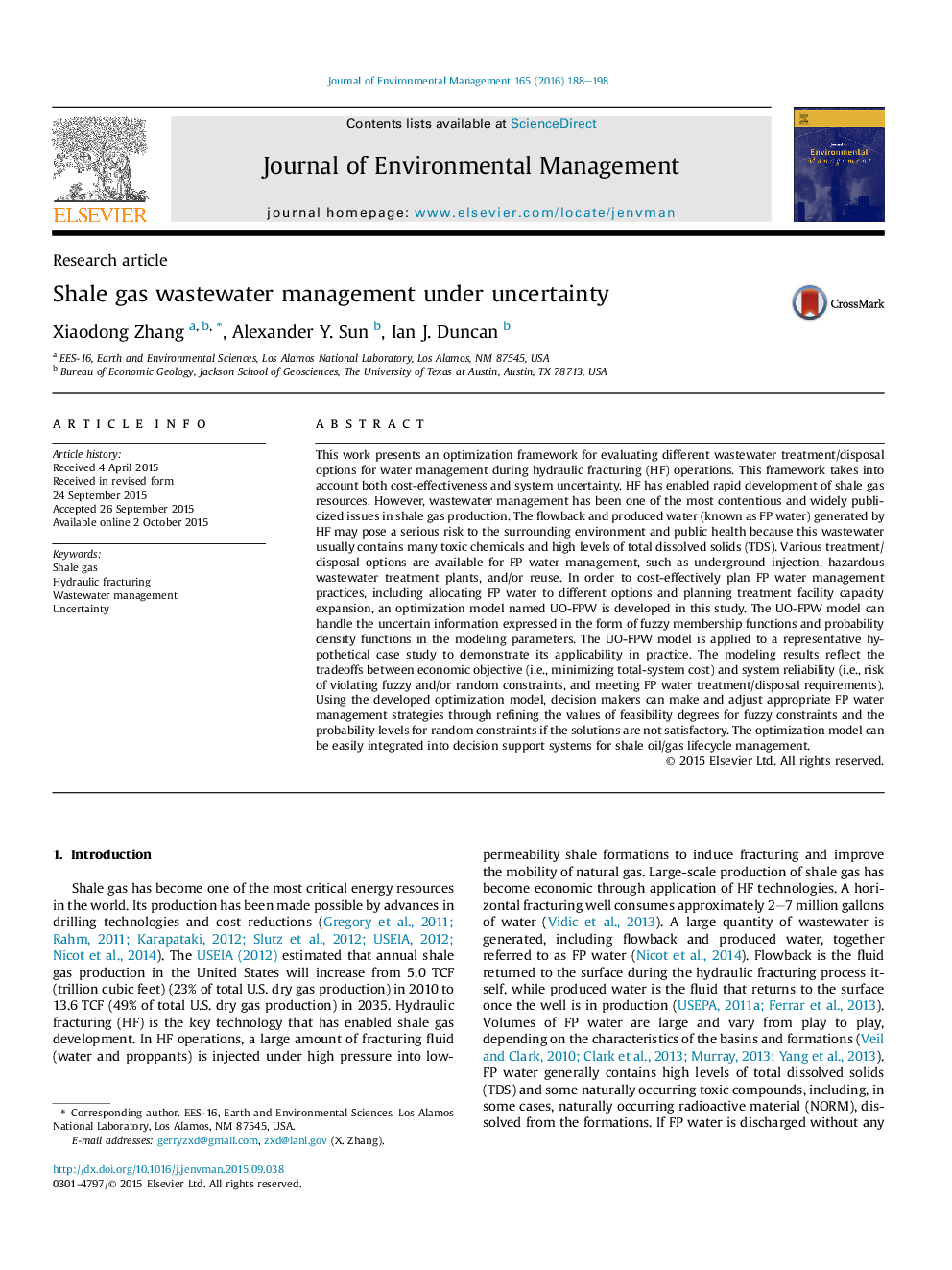| کد مقاله | کد نشریه | سال انتشار | مقاله انگلیسی | نسخه تمام متن |
|---|---|---|---|---|
| 1055489 | 1485247 | 2016 | 11 صفحه PDF | دانلود رایگان |
• We developed a wastewater management model for shale gas accounting for uncertainty.
• Alternative wastewater treatment/disposal options are considered.
• Optimal shale gas wastewater management strategies are generated.
• Stochastic and non-stochastic uncertainties are addressed.
This work presents an optimization framework for evaluating different wastewater treatment/disposal options for water management during hydraulic fracturing (HF) operations. This framework takes into account both cost-effectiveness and system uncertainty. HF has enabled rapid development of shale gas resources. However, wastewater management has been one of the most contentious and widely publicized issues in shale gas production. The flowback and produced water (known as FP water) generated by HF may pose a serious risk to the surrounding environment and public health because this wastewater usually contains many toxic chemicals and high levels of total dissolved solids (TDS). Various treatment/disposal options are available for FP water management, such as underground injection, hazardous wastewater treatment plants, and/or reuse. In order to cost-effectively plan FP water management practices, including allocating FP water to different options and planning treatment facility capacity expansion, an optimization model named UO-FPW is developed in this study. The UO-FPW model can handle the uncertain information expressed in the form of fuzzy membership functions and probability density functions in the modeling parameters. The UO-FPW model is applied to a representative hypothetical case study to demonstrate its applicability in practice. The modeling results reflect the tradeoffs between economic objective (i.e., minimizing total-system cost) and system reliability (i.e., risk of violating fuzzy and/or random constraints, and meeting FP water treatment/disposal requirements). Using the developed optimization model, decision makers can make and adjust appropriate FP water management strategies through refining the values of feasibility degrees for fuzzy constraints and the probability levels for random constraints if the solutions are not satisfactory. The optimization model can be easily integrated into decision support systems for shale oil/gas lifecycle management.
Journal: Journal of Environmental Management - Volume 165, 1 January 2016, Pages 188–198
